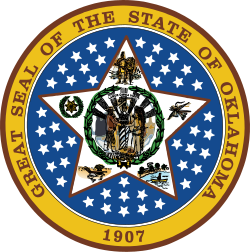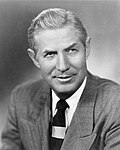November 7, 1950 | |||||||||||||||||
| |||||||||||||||||
 County results Monroney: 50–60% 60–70% 70–80% 80–90% Alexander: 50–60% 60–70% | |||||||||||||||||
| |||||||||||||||||
| Elections in Oklahoma |
|---|
 |
The 1950 United States Senate election in Oklahoma took place on November 7, 1950. Incumbent Democratic Senator Elmer Thomas ran for re-election to a fifth term. However, though he had successfully beat back primary challengers in past elections, he was ultimately defeated by Congressman Mike Monroney. Monroney advanced to the general election, where he faced Reverend Bill Alexander, the Republican nominee. Despite the national Republican landslide, Monroney defeated Alexander by a wide margin, holding the seat for the Democratic Party.

